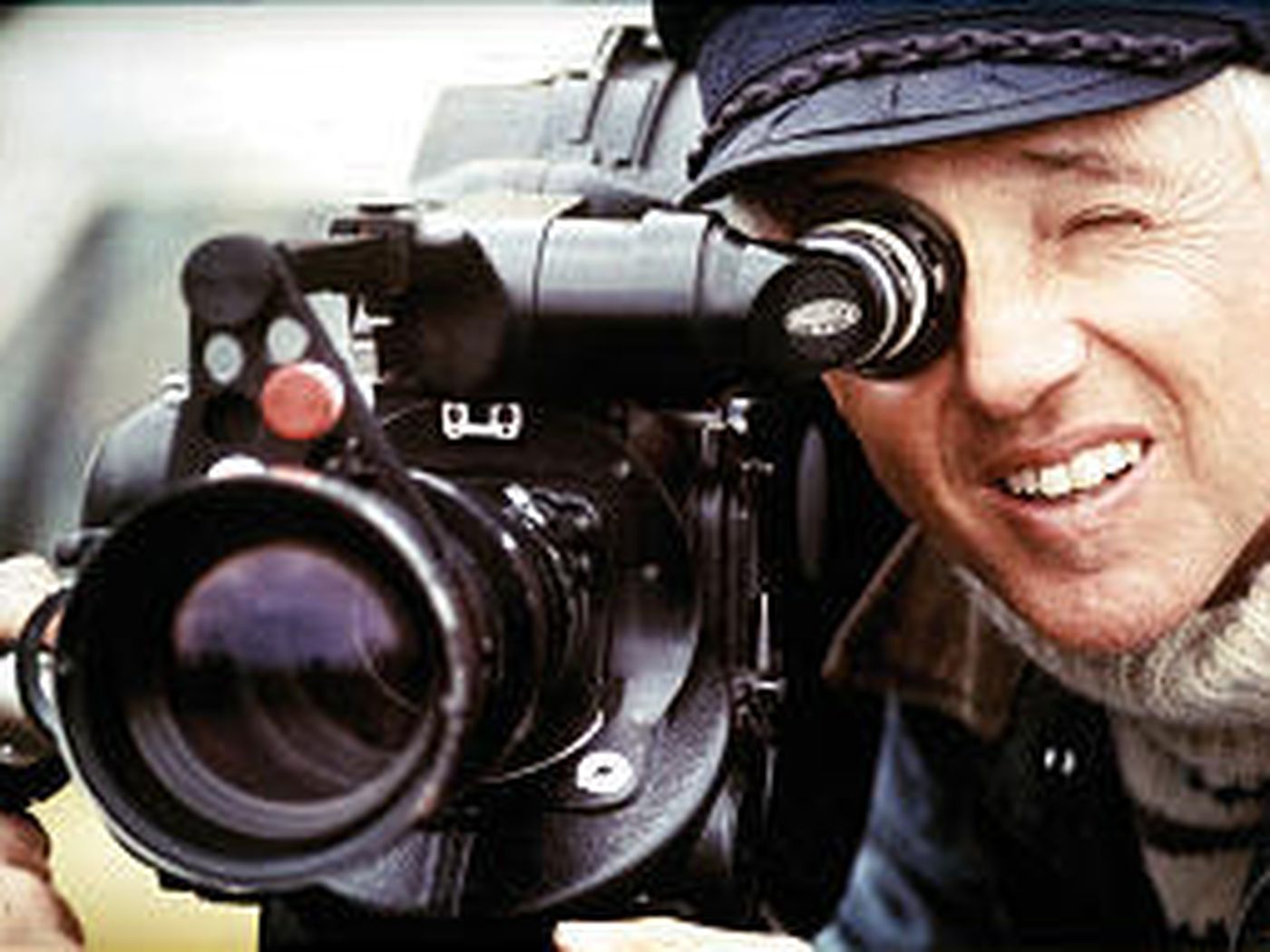By Chlotrudis Independent Film Society
Rating: 3.5 cats
Director: Mark Wexler

Country: united_states
Year: 2005
Running time: 95
IMDB: http://www.imdb.com/title/tt0441758/combined
Bruce says: “TELL THEM WHO YOU ARE is a documentary about the filmmaker Haskell Wexler, a two time Oscar winner for cinematography, directed by his son Mark Wexler. Part way through TELL THEM WHO YOU ARE one of the talking heads comments that you have to love your subject to make a good film. It is debatable whether Mark Wexler qualifies on that account. What is very noticeable is that he doesn’t really like his father. Unlike MY ARCHITECT: A SON’S JOURNEY, this film has no loving or forgiving overtones. It is filled with unpleasant, embarrassing moments which lead the viewer to believe that this is a ‘get even’ exercise.
“Born to a father who made his fortune in electronics, Haskell Wexler has always lived the easy life. However, on could never call him lazy. Gifted with limitless energy – he has worked incessantly over the years, throwing himself into his projects. Some of the speakers in the film such as Michael Douglas, Milos Foreman and Elia Kazan feel Wexler overstepped his bounds as cinematographer and feel that what Wexler really wanted to do was direct. Wexler was fired from more than one film because
the director felt he was stepping on his own territory. We get to see that pattern repeated during moments in this film where Haskell tells Mark: what the film should be about; what camera angle to use; and how to light the scene
“Haskell Wexler has always been a man with a social conscience. When he wasn’t working in Hollywood he was making films of his own such as the brilliant MEDIUM COOL a piece of fiction using the live Chicago riots of 1968 as background; INTRODUCTION TO THE ENEMY with Jane Fonda and Tom Hayden going to Hanoi; and UNDERGROUND about the radical Weather Underground Organization. One might think that a man leaning far to the left would have a humble demeanor. Not Wexler. He airs his views with patrician disdain.
“Some of the best footage involves the late Conrad Hall, close friend, fellow cinematographer and business partner of Haskell Wexler. Hall’s son, Conrad Jr., views Wexler as a father figure and Mark Wexler did the same with Conrad Sr. The Halls seem to have great respect for one another which is made all the more noticeable due to the lack of respect in the Wexlers’ father and son act.
“When a man such as Wexler has had such an illustrious career and has influenced so many directors and cinematographers, one wonders why there is a need to air dirty laundry. In a scene near the end of the film, the Wexler duo goes to a hospice to visit Haskell’s former wife – Mark’s mother – who now has Alzheimer’s. It is a tasteless moment, using a helpless woman as a device for their family shootout.
“Haskell openly admits that he was not a good father and that his lack of parenting skills may have driven his son to conservative political views. But he also says about child rearing ‘If I knew then what I know now Mark wouldn’t be such a mess.’ Mark Wexler presents himself as a spoiled little shit who needs childlike attention, even as a grown man. He parades pictures of himself with Presidents George H. Bush, George W. Bush, Bill Clinton, and Jimmy Carter as if to say. ‘Oops, I forgot this film’s about you, Dad.’ There is a lot of wonderful film lore to be gleaned from this film. One wonders how
much more could have been made available had the film not been a battlefield. 3 cats”
Diane says: “Mark Wexler, director of a small feature, a National Geographic film, and some others) tries to document his father, cinematographer Haskell Wexler (WHO’S AFRAID OF VIRGINIA WOOLF?, AMERICAN GRAFITTI). It is evident that Haskell, who characteristically tries to take control of his son’s film, is indeed a better filmmaker–insisting on the angle of a shot, resisting Mark’s attempts to make him set the scene….
“The film is deliberately not a career retrospective, but a study of the man and the father-son relationship. Both parties want that, but Mark asks that their conflict over politics be kept out–a huge issue for Haskell, whom the NYT called ‘a patrician radical.’ We see Haskell struggle to keep down his bile when he receives Mark’s birthday gift of a photo of Mark with Pres. Bush.
“It seems that Mark did not have the gumption to do what he wanted to do–he continues to be cowed by his father. Haskell acknowledges that the camera is mediating their relationship. Does the technology that stands between them indeed make them freer to say things, the way e-mail does? If Mark had allowed himself to talk frankly to his father on camera more, I think it would have.
“I would have liked more consistency or symmetry in the insertion of Haskell’s work and the use of titles. I surprised myself by really liking Jane Fonda in this movie, who is one of the interviewees.
“As the study of a father-son relationship, the subject is as interesting as MY ARCHITECT but the docu is not as well-formed. Nevertheless: 4 cats.”
